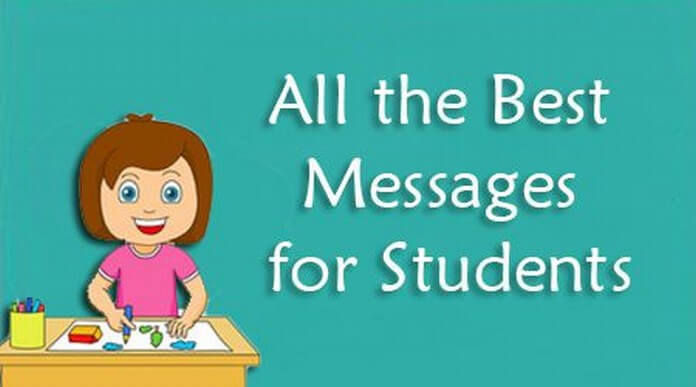Why Does The Learner Need Words of Encouragement?
Encouragement vs flattery
At first glance it may be clear that encouragement is similar to flattery, and that the learner needs to hear the two, but it is not. Simply put, as French writer Soline Bourdeverre-Veyssiere says in her book, “Positive Education in the Classroom / L'éducation positive dans la salle de classe”, phrases of encouragement are phrases that focus mainly on the way to do learning and its strengths, while compliments are only concerned with the outcome.
The prospect, whether by the learner himself or another person (parents, teachers ...). With this, expressions of encouragement recognize the efforts made and strive to reach the goal, even if the result is not complete, while praise statements only concern the outcome without considering how to reach it.
Consequently, the learner who used to hear compliments will only care to reach good results as long as someone else does not recognize how he seeks it, and worse than that, he may rely on illegal methods such as stealing research and translating it or cheating in the exam in order to reach high levels, for example. While hearing the words of encouragement motivates the student to provide the best in terms of exerting effort and developing study and study methods and others without worrying about the outcome or the final mark.
Types of encouragement
Writer Soline Bourdeverre-Veyssiere categorizes cheerleading into three types, highlighting the difference in each type of compliment as follows:
1- Descriptive encouragement
Where the person depends on encouraging the student by describing what he observed and sensed during the learning process, for example, if the teacher says to the student: “I notice that you have relied on different sources from the Internet and made sure to translate their content, this is a good thing” instead of just saying “research is good, no wonder You are a distinguished student, ”or the father says,“ I see that you have changed the way you study and started to rely on mind maps .. These are really innovative ways ”instead of saying“ You are a diligent student. ”
Consequently, the description should affect the learning process and the student's efforts, and not only compliment him. Where, by drawing on the previous two examples, if you rely on flattery, the learner will endeavor to remain distinguished and seemingly industrious only in whatever ways the retention of this "title", while if you put your hand on the attribute of excellence and diligence, he will strive - inevitably - to develop and do it.
2- Appreciation / appreciative encouragement
This type of encouragement is related to appreciation of the collective contribution, such as giving a hand, such as saying, “Thank you very much for my help in solving the exercise” instead of saying “Without your help I would not have been able to do the exercise.” No, while in the second statement, you thank him specifically because his help was satisfactory. Mostly - if the learner is accustomed to hearing the second phrase instead of the first, he may refuse help that was asked of him simply because he thinks it is difficult and he will not be able to solve it. Hence, flattery here may have a negative rather than a positive result, such as encouragement.
3- Capacity building encouragement
It is to encourage the person in difficult situations by increasing his own abilities to do or bypass the matter. This type of encouragement is the most important and difficult at the same time, as it helps on the one hand to enhance a person's self-confidence and build his own capabilities, and on the other hand is a weight that carries on him. For example, “It was difficult, but you managed to overcome it”, “Trust your abilities in overcoming crises”, “Changing the method of memorization was a brilliant decision from you to study a lot in a short time”… and other phrases that focus mainly on the personal capabilities of the learner, but they prove that The eyes are directed towards him, which may increase pressure on him to provide the best (in terms of method and not the result as previously explained in the previous lines).
It should be noted that encouragement is not only limited to success, it is also possible to encourage the student even if he is not able to obtain satisfactory results, while complimenting him in this case will be difficult not exceeding the scope of sympathy, as we explained in a previous topic.
Therefore, try to spread words of encouragement to those around you, and not just compliment their results.



